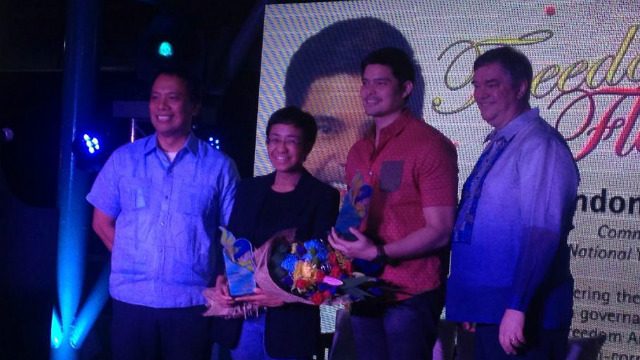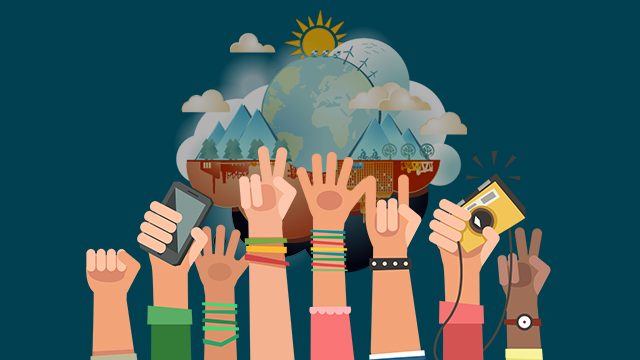SUMMARY
This is AI generated summarization, which may have errors. For context, always refer to the full article.

MANILA, Philippines – The youth need to do more to address climate change and protect their shared future.
This was the challenge of National Youth Commissioner-at-large Jose Sixto “Dingdong” Dantes III given to youth from southeast asia on Wednesday, February 4.
“They should be able to take the front seat in making climate change a history,” he said in a gathering of young leaders for climate change organized by the Friedrich Naumann Foundation (FNF) and the Council of Asian Liberals and Democrats (CALD).
He added that the youth were a strong force for change. However, he emphasized that it is necessary to first be knowledgeable about climate change and the threats it poses to mankind.
“Kapag may alam, mas may pakialam because knowledge breeds action,” Dantes said. “If you know something, we can act upon that.”
(If you know something, you will care more because knowledge breeds action. If you know something, we can act upon that.)
Digestible size
How can a climate change advocate encourage the youth to learn more about a complicated issue?
According to RockEd Philippines’ Gang Badoy, one can utilize social media – especially Twitter – to disseminate information and spark interest.
“Twitter is the longest tentacle any climate advocate has,” she explained. “The character limit has its advantage because the youth don’t listen to long speeches, they listen to tweets.”

The challenge lies in creating “bite size and digestible” pieces of complex information said Badoy. Advocates should be able to translate the prism of climate concepts into a language easily understood by the youth today.
“The language of climate change is complex so the challenge is to translate,” Badoy said. “If we don’t speak the language of the youth, they don’t listen.”
However, Badoy emphasized that it is only the first step to encourage them to interact and join the cause against climate change. She also said an advocate should first get a grasp of the concepts before trying to explain them to others.
The rest is, Gang believes, a walk in the park.
“Once you made the youth interested in climate change, then they will Google and research on their own,” she said.
Rehabilitation undersecretary Lesley Cordero said the government is also trying to find ways to improve information dissemination for disaster management.
“No one will read 18,000 pages of our plans so we make use of videos and social media to let it out,” she explained. “We have to translate to better get the message across to affected communities.”
Technology action
Even with the meteoric rise of technology that connects the world, Badoy pointed out that real life actions are still necessary to forward causes and advocacies.
“Nothing in Twitter makes sense if this isn’t interpreted in real life,” she explained. “Blogging and tweeting should not be passive since you won’t have nothing to post if you don’t act.”
Cordero, on the other hand, urged the use of town hall meetings and local community gatherings to disseminate critical information for disaster risk reduction and climate change awareness.
“Let’s utilize town hall meetings so climate change can become a more mainstream topic,” she said. “It is enough now to build back better. It is time to build back better, faster, and safer.” – Rappler.com
Youth hands image and Climate change image via Shutterstock
Add a comment
How does this make you feel?
There are no comments yet. Add your comment to start the conversation.